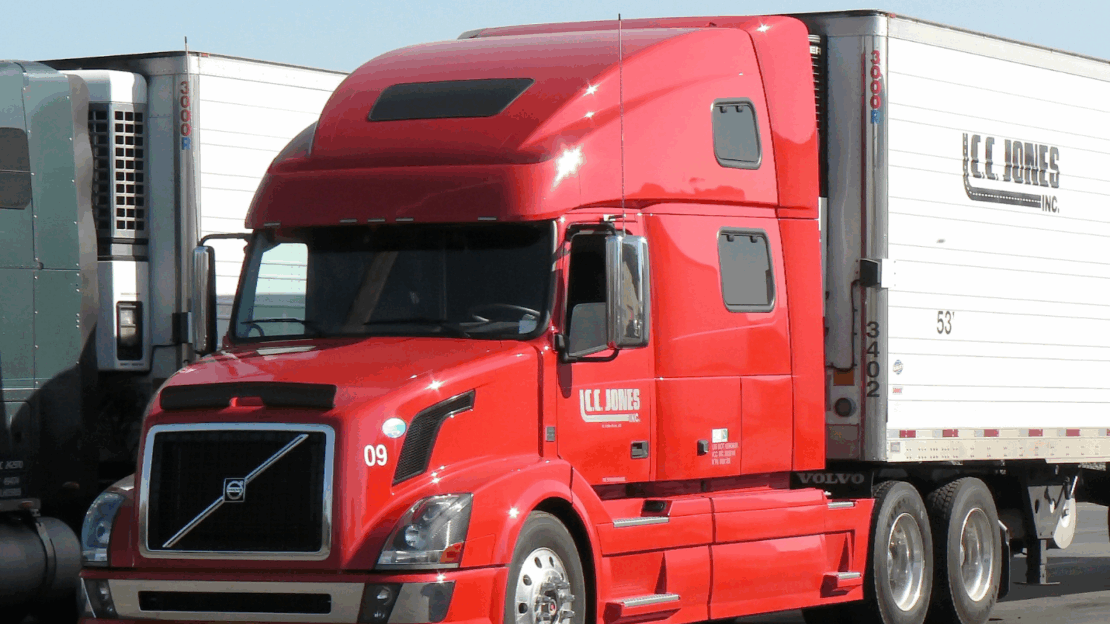What to Do After a Commercial Vehicle Accident
Every commercial driver knows accidents can happen in an instant, even during a routine delivery route. Commercial vehicle accidents are different from personal vehicle crashes. They have stricter reporting requirements, DOT regulations, employer notification procedures, and the potential for serious liability.
In 2023 alone, 5,375 large trucks were involved in fatal crashes according to the National Safety Council, marking a 43% increase over the past decade. That’s why knowing exactly what to do after a commercial vehicle accident is critical for safety, compliance, and protecting your career.
And when it comes to repairing the vehicle afterward, DeVivo Collision Centers specializes in repairing commercial vehicles.

Immediate Safety Steps (First 5 Minutes)
- Ensure safety first
- If possible, move your vehicle to a safe location off the roadway.
- Turn on hazard lights immediately.
- Check for injuries
- Assess yourself, passengers, and anyone else involved.
- Call 911 for emergencies or a non-emergency police line for minor incidents.
- Secure the scene
- Place reflective triangles or flares if available.
- Stay visible and avoid standing in traffic lanes.
Critical Documentation Phase
After ensuring safety, the next step is collecting thorough documentation:
- Photos: Capture vehicle damage, the crash scene, skid marks, traffic signals, and weather/road conditions.
- Information exchange: Get names, contact info, insurance details, license numbers, and employer information from all parties.
- Witness details: Gather names and phone numbers of anyone who saw the crash.
- Vehicle specifics: Record make, model, license plate, VIN, and DOT numbers if applicable.
- Conditions: Note the time, date, location, road conditions, and visibility.
This documentation will not only protect you but also help your repair shop provide accurate estimates and expedite insurance claims, something DeVivo Collision Centers prioritizes for commercial fleets.
Legal and Regulatory Requirements
Here’s where commercial vehicle accidents differ sharply from personal vehicle accidents.
DOT Recordable Accident Criteria
According to FMCSA regulations (§390.5T), an accident is “DOT recordable” if it involves:
- A fatality
- An injury requiring immediate medical treatment away from the scene
- Disabling damage to any motor vehicle requiring it to be towed
- A commercial vehicle (10,001+ lbs. GVWR, hazmat placarded, or designed to carry 9+ passengers)
Reporting Obligations
- Carriers must maintain an accident register for 3 years, listing details like date, city/state, number of injuries, and whether hazardous materials were released.
- Drivers must notify their fleet manager or safety officer immediately.
- Drug and alcohol testing is required if the crash involves a fatality or when certain citations are issued.
Protecting Your Interests
- Be cautious with statements: Do not admit fault at the scene. Stick to facts when speaking to police or other drivers.
- Stay professional with law enforcement: Cooperate fully, but avoid speculation.
- Contact legal counsel: If the crash involves major injury, multiple vehicles, or hazmat, consult an attorney before making detailed statements.
Post-Accident Administrative Steps
- Complete reports: Fill out company accident forms and submit insurance claims promptly.
- Medical evaluation: Get checked even if you feel fine. Injuries can surface later.
- Vehicle inspection: A qualified mechanic must clear the vehicle before it returns to service.
- Keep records: Save medical bills, repair estimates, and correspondence for compliance and claims.
Prevention and Training
While accidents can’t always be avoided, prevention strategies matter:
- Defensive driving: Allow extra stopping distance, anticipate hazards, and adjust for weather.
- Routine maintenance: Keep tires, brakes, and light in top shape.
- Ongoing training: Companies should conduct annual safety refreshers and encourage review of fleet accident procedures.
Why It Matters
Commercial vehicle accidents carry serious safety, financial, and legal consequences. FMCSA’s 2024 crash cost methodology estimates truck-involved crashes cost carriers hundreds of thousands of dollars per incident, not including reputational damage.
By following the right truck accident steps, you can reduce risks, protect your livelihood, and ensure your vehicle is repaired quickly and professionally at DeVivo Collision Centers, a trusted partner for fleet operators and commercial drivers.
Why Choose DeVivo Collision Centers for Commercial Vehicle Repairs
After a commercial vehicle accident, getting your fleet repaired quickly and correctly is critical. DeVivo Collision Centers specializes in commercial vehicles, from delivery vans and full-sized buses, to trucks and RVs. Our state-of-the-art facilities, DOT-compliant inspections, and experienced technicians ensure your vehicles are back on the road safely and efficiently.
We also coordinate with insurance providers to streamline claims, so you can focus on running your business. Learn more about choosing the right collision center for your fleet.
With two convenient locations, Middletown, CT and Randolph, MA, our team is ready to support your fleet whenever you need repairs.
FAQ
Q: What’s the difference between a DOT-reportable and a DOT-recordable accident?
A: “Reportable” may vary by state, but “recordable” is federally defined under FMCSA rules and must be logged by carriers.
Q: Do I need drug and alcohol testing after every accident?
A: No. Testing is required if the crash involves a fatality or if certain moving violation citations are issued to the driver.
Q: Should I call my personal insurance or just my company?
A: For most fleet vehicles, the employer’s commercial policy is responsible, but always follow company procedures.
Q: Where should I take my commercial vehicle for repairs?
A: DeVivo Collision Centers specializes in commercial vehicle repairs, including delivery trucks, fleet vans, and buses. Our technicians handle DOT-compliant inspections, insurance coordination, and fast turnaround, so your fleet gets back on the road safely.
Disclaimer:
The information provided in this article is for general informational purposes only and is not intended as legal, medical, or professional advice. Commercial drivers and fleet operators should consult with their employer, insurance provider, legal counsel, or relevant authorities for guidance specific to their situation. DeVivo Collision Centers is not responsible for any decisions made based on the content of this article.